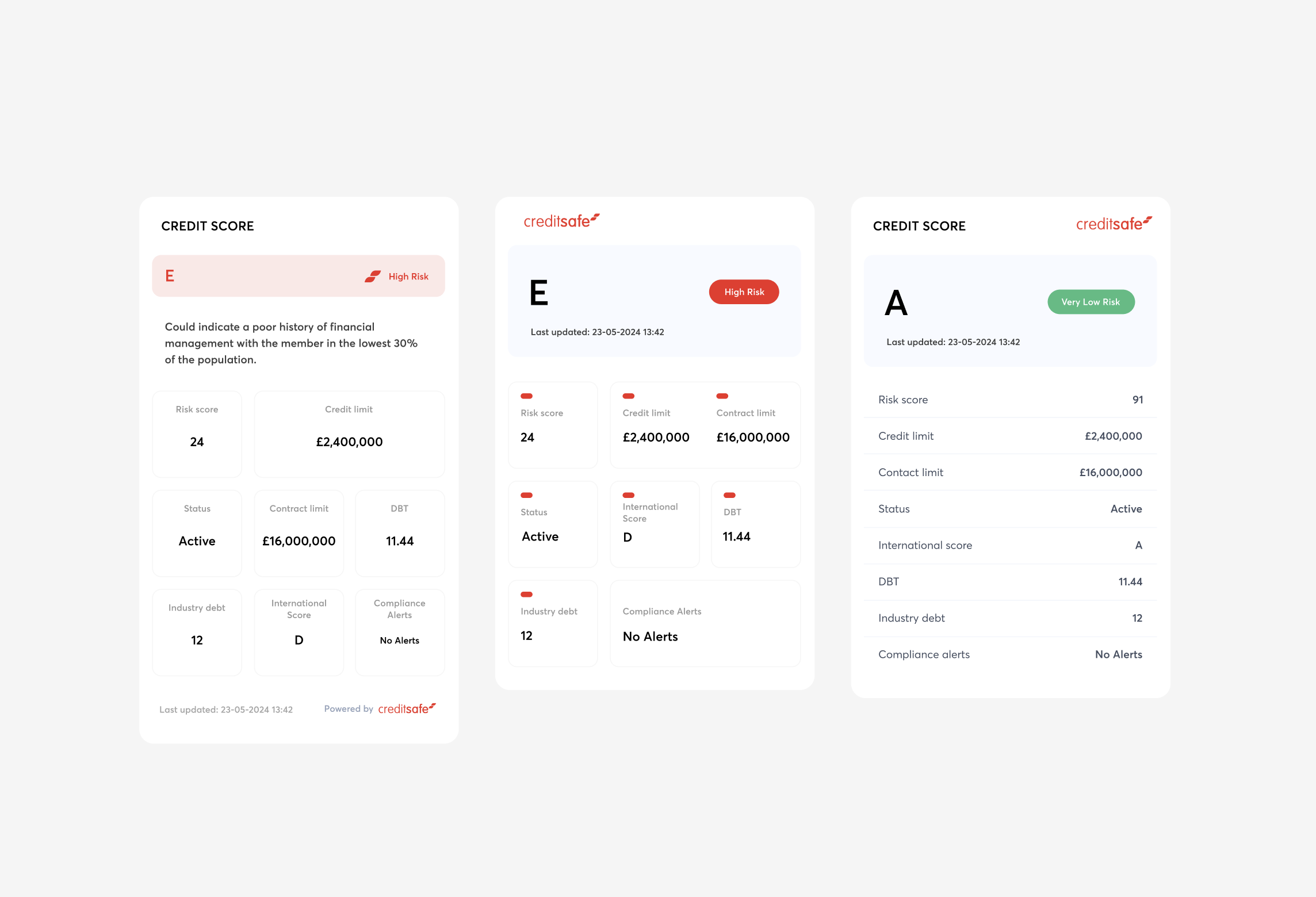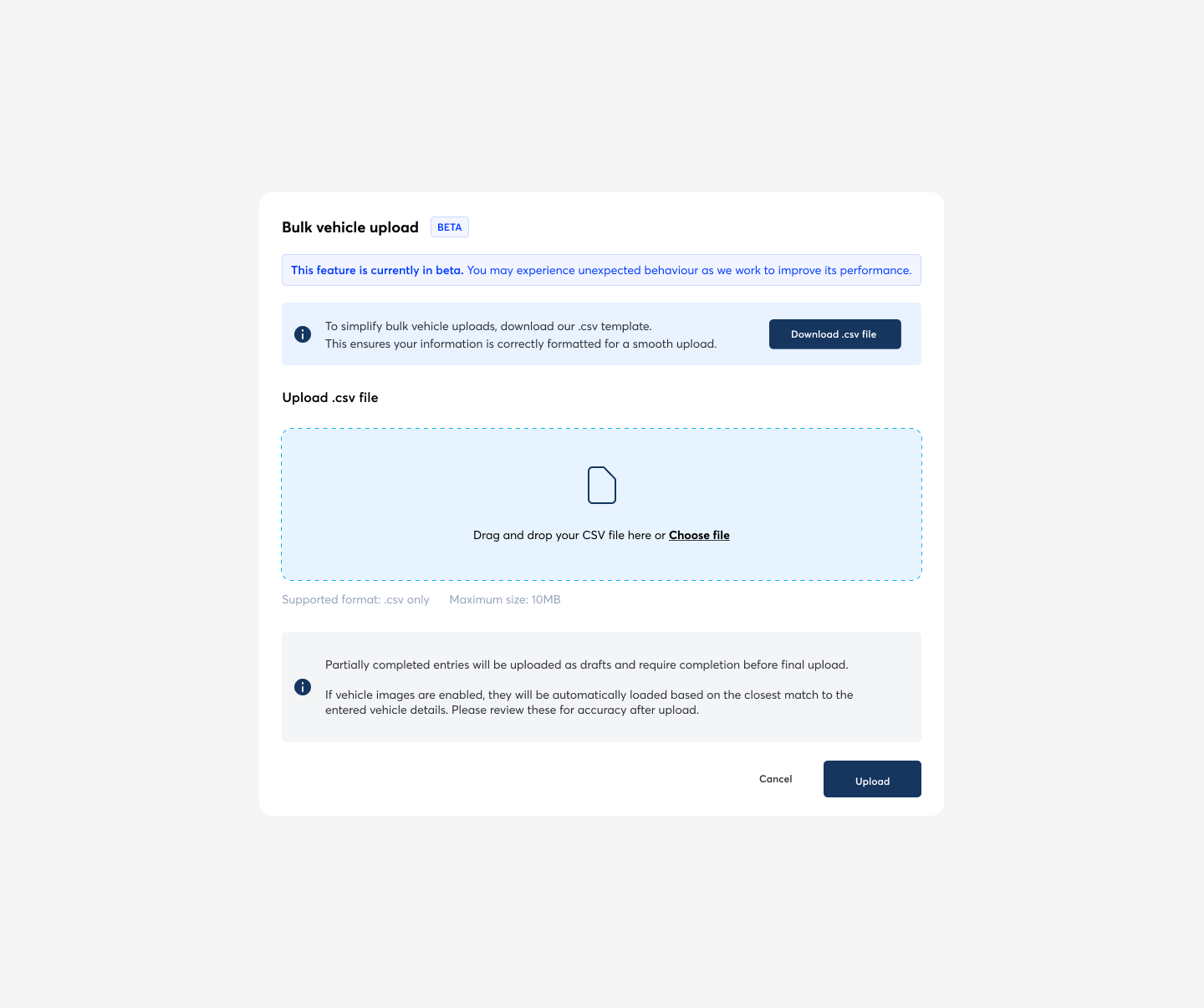B2B Automotive SaaS/E-commerce Platform
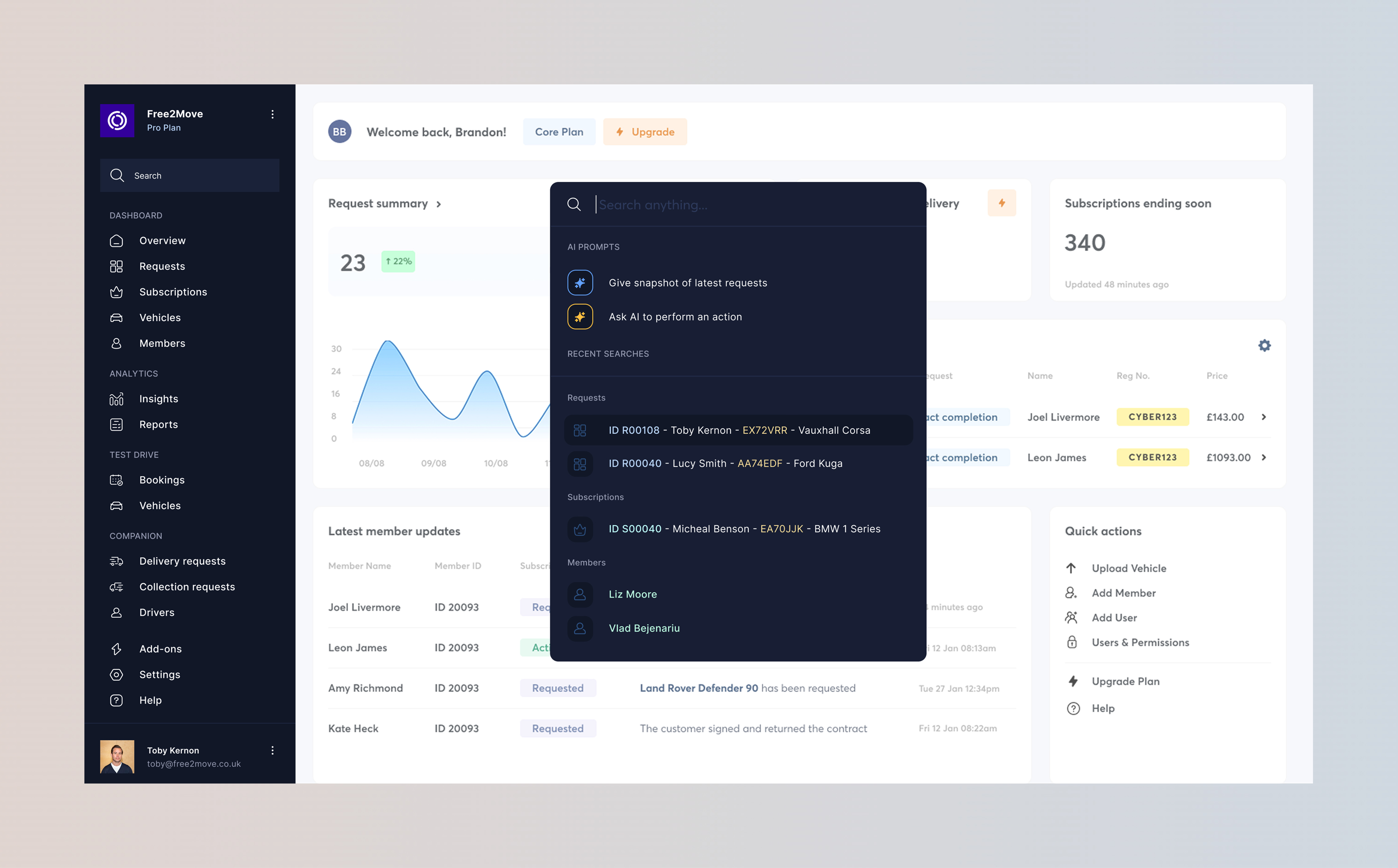
Summary
Joining Wagonex as the Product Design Lead, I was responsible for helping this early stage start up address a critical (make-it or break-it) challenge: the B2B platform was failing the business and limiting this tech focused player from unlocking the huge revenue potential in the automotive space.
'Dashboard' - was name of the (insert pun) dashboard product being marketed by the company as it's answer to give partners in the space a digital marketplace and fleet management platform designed to unlock revenue and promote scalability.
Although the platform was, in many ways giving partners a digital marketplace and fleet management platform, in so many more ways the platform was failing the audiences it intended to serve.
I identified a multitude of UX issues which had been holding the platform back and strangling business growth. These included:
- Dated UX & sluggish performance meant every task felt painful or long.
- Functional gaps (no bulk uploads, no multi-vehicle workflows, limited payments) slowed partners down. (The automotive industry is old-school so they needed something compelling)
- Lack of trust – Partners viewed the platform as unreliable and frustrating.
The Mission
Redesign Dashboard into a scalable, modern SaaS platform that:
1. Restores partner trust.
2. Digitises outdated manual processes.
3. Drives adoption and unlocks revenue opportunities for Wagonex and its partners.
In the most simple form:
Turn Wagonex’s platform from a blocker into a business growth engine.
My Approach
Let's begin with Discovery
Coming in as the product design lead, it was clear to me that wagonex was tight on resource across its own functions and budgets strained. This led me to ensure that I fully leveraged the tools and practices at my disposal. First up, stakeholder workshops to establish alignment. This was a case of getting everyone with a vested interest in the product internally around a table (albeit, on a google meet) to determine and align on the business priorities. Revenue growth, building partner trust and mainly, driving adoption of dashboard at scale became the core objectives.
With this alignment in the bag, I was able to being conducting partner interviews to gain real-world user feedback and involvement uncovering pain points around vehicle uploads, request flows and a lack of flexible payment terms that mirrored real-world deal structures.
In tandem, I sought about carrying out process mapping to gain a comprehensive understanding of how partners were currently carrying out offline tasks and where a digital solution could be meaningful. Multiple processes which could be reimagined by a digital solution were identified such as identification checks, arranging test drives and handling vehicle inventory.
Wagonex are not the only player in this space. In fact both LeasePlan and Tomorrow’s Journey offer a platform very similar which gave me a great benchmark for bets practices, differentiators and opportunities left on the table for Wagonex to pounce on.

Determining UX Strategy
Discovery done right is always fruitful. It really should be treated as the catalyst for everything which follows. For me, next up was defining and locking down the UX strategy. Two key themes sat at the very heart of this - Usability and commercial impact. A win for the user and a win for Wagonex. I begun by prioritising the reliability of the platform. I needed to tap in to that old-school mentality held by the industry and change it. Modernise it. Digitise it. By simplifying and streamling core workflows, the platform would be able to re-establish its reliance amongst users. Combing this with feature expansion and giving light to missing tools and functionality identified when talking to partners would ensure the platform was going to end up on the right road.
Road, see what I did there. Ha!
To get partners using the platform (and in a lot of cases even getting partners to the stage of wanting a demo) I adopted an e-commerce mindset that would channel directly in to the platform. I adapted proven flows from consumer experiences - such as the ability for customers to add multiple vehicles to a basket and flexible payment options on the consumer facing side of the product. On the partner side, I went SaaS. Super SaaS. Analytics, insights and reporting would be directly baked in to the platform and new integrations with leading verification and vehicle management tools would reshape dashboard. From a design perspective, I introduced a new design system for Wagonex to ensure consistency across every module and component as well as accelerating product delivery and setting a foundation for future product growth.
Product Architecture
The redesigned and reimagined Dashboard was built around several key modules:
Fleet Management - The ability for partners to upload and manage entire vehicle inventory digitally, with CSV bulk upload support.
Partner Portal - Building tools for managing listings, payments and customer leases/ subscriptions. Automation was key in bolstering the viability of the platform.
Analytics & Insights - Created visual dashboards for performance, fleet utilisation and conversion data.
Verification & Compliance - Integrated CreditSafe and Credas checks for partner and customer onboarding.
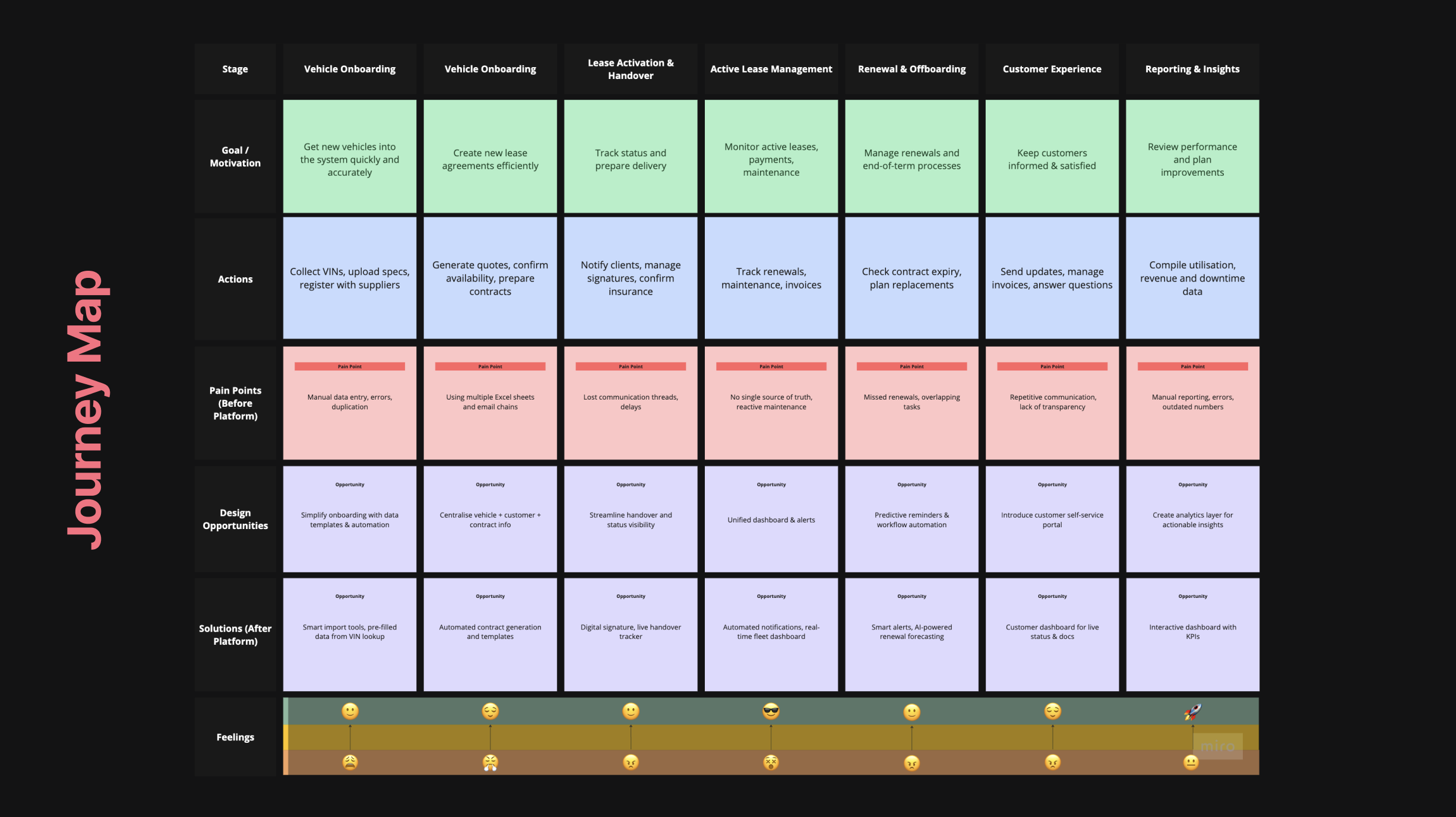
Product Core Features
Based on extensive research and analysis, I was able to identify key features that would need to be introduced in to the platform to ensure those core objectives shone through. This wasn't just about layering features in to the platform. Oftentimes this results in a messy, frustrating user experience. Instead, this was about providing an experience which felt easy, like second-nature and would ultimately get the industry to shift to a digital mindset. This was understanding human behaviour and behavioural loops in action.
I redesigned critical partner workflows and introduced a range of new product features such as bulk vehicle upload (cutting upload time of multiple vehicles from ~15 minutes per 2 to under 2 minutes for 50+ vehicles using a simple .csv upload), multi-vehicle basket and flexible upfront/one-off payment flows. I addressed the checkout flow, reducing required steps from 7 to 4 which resulted in completion rates lifting from 58% to 83% on the white-label customer journey.
To empower partners, I designed an analytics and insights dashboard (now used weekly by 80% of partners), launched channel and affiliate management tools and integrated CreditSafe and Credas checks.
Combined, these improvements made the platform faster, more reliable and commercially impactful.
Design Process
Let's start with user Flows & wireframes
I mapped end-to-end journeys from vehicle onboarding → subscription checkout → partner reporting to lock in the flow of how dashboard would work. At this stage, I also determined how partners conduct offline flows to ensure the experience was aligned in supporting the needs of the parnter. Usability testing helped refine confusing terms and optimise navigation.
It's so much more scalable with a component library
XUI was designed to ensure the platform could scale at speed while ensuring visual consistency across modules. It combines reusable components alongside clear hierarchy, enabling rapid iteration as the product evolves.
Principle guidelines underpinning XUI
Reusability & Scalability
Component logic designed and structured to support future features like AI forecasting and multi-language support whilst supporting new feature development.
Consistency
Reusable UI building blocks accelerated design and development cycles, keeping visual consistency across modules.
Brand Fidelity & Emotion
Beyond usability, XUI translated brand values into visual and emotional consistency.
Testing & Iteration
Through remote user testing (via BTRT and Miro sessions) and partner testing, we iterated on prototypes and validated improvements with key partners and end users before development. As a startup, its important Wagonex was able to ship quickly and iteration based on feedback digested and worked in. 'Fluffy' requirements are part of the startup nature and this is was no exception for Wagonex. I stepped in to incrementally get the product to where it needed to be. Bit by bit.
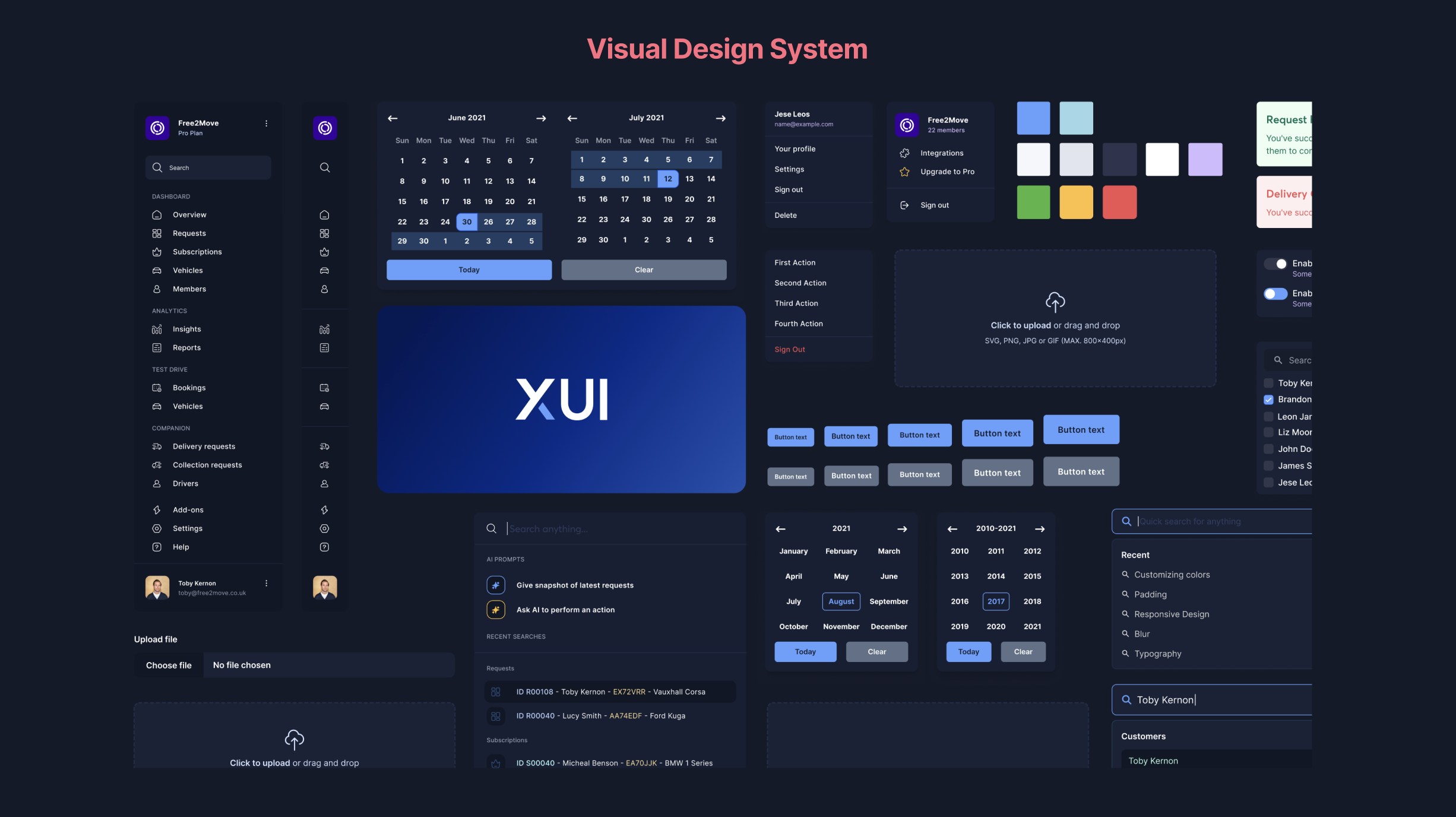


Results
Reflection
This project was not just about redesigning a platform which needed it but it was about shaping a clear product vision and building features that matched the realities of the automotive leasing business.
By blending B2B UX discipline with B2C e-commerce best practices, I helped transform Wagonex into a platform partners and customers actively chose to use, while unlocking new revenue streams through innovative add-ons.
For me as a designer, this was a showcase of hands-on design leadership at a Series A stage – balancing immediate commercial needs with the needs of partners and customers for future growth.
If I were to revisit this project today, I’d push the design thinking even further. Challenge more and be bolder. I’d start by exploring how AI could help forecast inventory and utilisation, giving partners the ability to plan ahead rather than react. I’d also love to experiment with conversational interfaces. Imagine a partner simply asking, 'Show me cars awaiting approval,' and getting an instant, data-backed response. How cool would that be.
Finally, I’d spend more time understanding the B2B partner experience end-to-end, digging into those satisfaction loops to see how trust, usability and of course commercial impact could evolve together over time.
Let's Talk
If you have a project you would like to discuss, fill out the form and I'll get back to you shortly.
